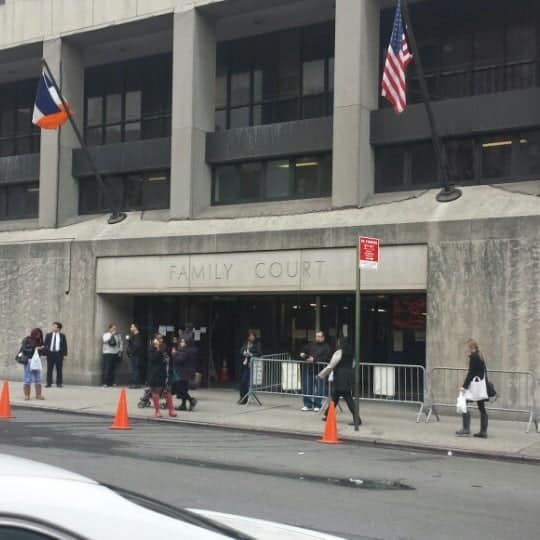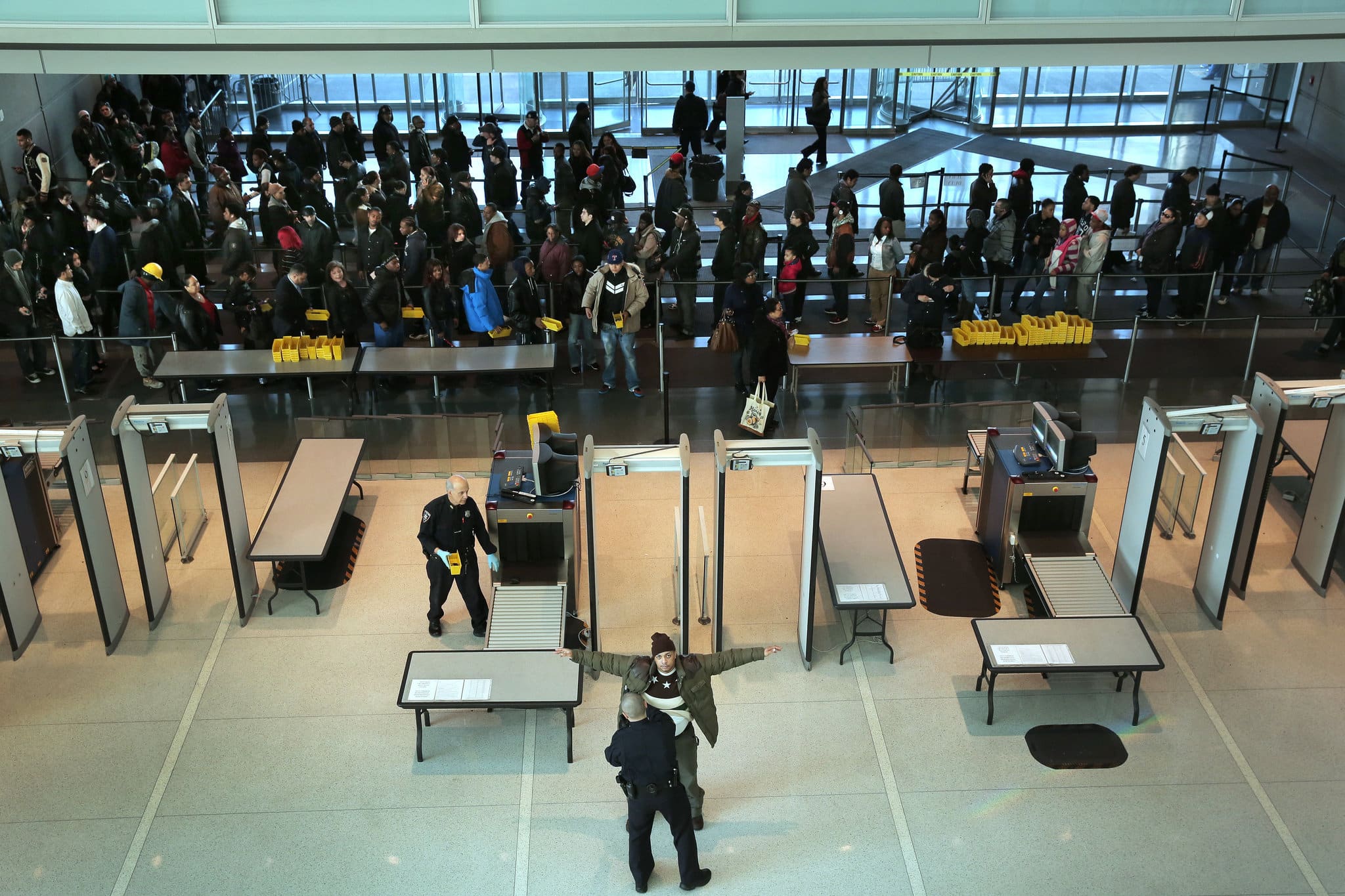Money Judgment/satisfaction Of Money Judgments
This office dockets and maintains many different types of Money Judgments/Satisfactions, please specify the type of Money Judgment/Satisfaction for which you are requesting information. Example: NYS or NYC Tax, Parking Violations, Environmental Control Board, Supreme/Civil/Family or Criminal Court Judgments. Etc .
Please be advised that each type of lien and or Judgment search requested, requires a Search fee per lien/Judgment requested.
Please provide the name whom the Judgment was entered against and in favor of the address of the parties, the entry date and the amount of Judgment if known.
What Are Bronx County Criminal Records
In Bronx County, law enforcement agents create criminal records to highlight an individuals illegal relationship with the county. They typically include arrest records, past and present charges, records of court proceedings, sentencing, and incarceration details. In Bronx County, criminal records are available from the New York State Department of Criminal Justice Services and the New York State Office of Court Administration .
New York Town And Village Courts
New York Town and Village Courts are collectively known as Justice Courts. They handle cases involving vehicle and traffic matters, criminal offenses, and small claims. They also hear civil suits involving claims up to $3,000. They also handle landlord and tenant matters that may lead to eviction and money judgment for due back rents.
There are about 1,300 locally funded Town and Village Courts throughout the State of New York, except for New York City. Justices for these courts are usually elected to a 4-year term, and non-attorneys are allowed to be justices. However, non-attorney justices must undergo and complete the required courses on judicial education to qualify.
Don’t Miss: Best Gyms In The Bronx
Child Support Court Watch Project
Modern Courts offered consultation to Her Justice for a Court Watch program to better understand the often invisible experience of litigants in child support proceedings since most are unrepresented. Volunteer court watchers were trained to observe the courts from an average persons viewpoint and provide common sense perspectives on how courts serve the public.
What Are New York Judgment Records

New York judgment records are court documents containing information about a criminal or civil case outcome in New York. Section 255 of the Judiciary Law makes judgment records and associated court documents available to interested members of the public. Persons who wish to obtain copies of judgment records must possess the necessary details to identify the case and pay the associated fees.
A judgment is the court’s decision on the facts of a civil petition or criminal charges. Entering this decision is usually the end of a typical court case, and the court clerk maintains a copy of the judgment in the court archives.
To obtain a copy of the judgment record, visit the clerk’s office during business hours. There, submit a request for the court record, providing the case number and the persons’ names. The requester may also provide the presiding judge’s name and the judgment year to expedite the search. Upon retrieval, the requester may copy the whole case file or choose specific documents to copy. The administrative staff charges nominal copying and certification fees for this service. Cash, money order, certified check, and credit cards are acceptable payment methods.
Persons who obtain New York judgment records can expect to see the litigants’ names, the judge’s name, and judgment date. In addition, judgment records contain the specific claims of the parties involved or the charges against the defendant , as well as the issued judgment in the case of interest.
You May Like: When Is The Best Time To Visit New York
New York Criminal Court
New York City Criminal Court hears cases concerned with misdemeanors and lesser offenses. Criminal Court judges may also conduct arraignments and preliminary hearings for felonies. As the name suggests, the court only exists in New York City. Unlike in other trial courts where judges are elected, the Mayor of the City of New York has the responsibility of appointing the judges for the court.
The judges are usually appointed to a 10-year term in office. Only persons who are charged with serious crimes may face a jury trial. Serious crimes in New York state are defined as those which may attract more than six months of jail terms. Defendants charged with non-serious crimes may be entitled to a bench trial.
Where And How To Get Bronx County Marriage Records
The City Clerk of New York holds marriage records from 1950 to date, for the five counties in New York City, including Bronx County. Anybody can request a marriage record that is older than fifty years. However, only the spouses, individuals with one of the spouses written permission or legal permission, may request marriage records younger than fifty years.
Eligible requesters must complete an application form, attach proof of eligibility, and the requisite fee. The fee for marriage certificates is $15 for the first certified copy and $10 for each additional copy. Second-year searches cost an added $1, and searches for subsequent years cost 50 cents.
City Clerk of New York141 Worth StreetAttn: Record Room
Also Check: Is The New Yorker A Scholarly Source
How To View How To Search Court Dockets
In person+
State Courthouses
Trial Court case information is available at designated public access computers located in District, Boston Municipal, Probate and Family, Superior, Housing, and Land Courts and County Registry of Deeds sites.
The public access PCs run the eAccess application and allow searches by name, case type, and case number. The search results display case information, including party, event, docket, and disposition details. However, you can’t view case documents. Actual case documents are available for public inspection in the Clerk, Register, and Recorder’s Offices.
Online+
Internet
Certain Trial Court case information is also available to the public online at www.masscourts.org. You don’t need a log in. To access this information:
Criminal Court Date Look Up Find Next Court Date In Criminal Court
If your case is in Criminal Court , then you need to use the Courts WEBCRIMS to find your next Court date. You can also use WEBCRIMS to find free criminal records. By logging into WEBCRIMS as a public user, anyone, whether you are a defendant or an attorney/lawyer, can find someones next court date. You can find information and the next court date for both misdemeanor and felony cases. The system also gives you information about what court the case is in, the judge on the case, the charges, the defendants name and date of birth, the amount of bail that was set in the case, when the case was on last, all dates the case has been on the calendar, and whether or not a plea offer was made by the district attorney. WEBCRIMSis run by the Unified Court System and is the OFFICIALCourt Date Look Up website! Please note that often people who are arrested and given a Desk Appearance Ticket will often not find their next court date in the WEBCRIMS system. This is because the DAT is issued by the Police Department and not the Court system directly.
FIND SOMEONES BAIL IN A CRIMINAL CASE
HOW TO FIND OUT WHAT A PERSON WAS ARRESTED FOR
WHO ARRESTED?
Don’t Miss: Can You Play Fanduel In New York
New York City Court Information
New York City has five types of courts:
The Supreme Court, Civil and Criminal: The New York State Supreme Court is a trial court that hears civil and criminal cases. The Supreme Court has two branches: Criminal Term and Civil Term in each of the five boroughs. The Criminal Term of the Supreme Court handles various felony and misdemeanor cases, including murder, burglaries, conspiracies, weapons charges, and drug, and traffic cases. The Civil Term of the Supreme Court handles civil cases over $25,000 and hears medical malpractice cases, labor law disputes, motor vehicle cases, and other torts.
Criminal Court: The New York City Criminal Court handles misdemeanors and lesser offenses and conducts arraignments and preliminary hearings for felonies. For general information on the NYC Criminal Court system, call the NYC Criminal Court Information Line at 646-386-4500.
Family Court: The New York City Family Court hears cases that involve children and families. The Family Court has the authority to make decisions over cases involving:
For general information on the Family Court, call the NYC Family Court Information Line at 212-347-3700.
Civil Court: The New York City Civil Court hears civil cases involving amounts up to $25,000, as well as other civil matters that are referred to it by the Supreme Court. The Civil Court also hears small claims cases involving amounts up to $5,000 and housing-related civil cases.
Where And How To Find Bronx County Inmate Information
Individuals interested in obtaining Bronx County inmate information may use the Inmate Lookup Service, provided by the New York City Department of Corrections. The service allows users to search for inmates by first and last name, NYSID, book, and case number. Results typically include the inmates DOB, image, incarceration information, and discharge date.
Also Check: How To Get A Job At 14 In New York
Electronic Document Delivery System
The UCS has made available a system of secure document transmission by court users to judges, clerks of court, and other UCS offices around the State. This system, known as the Electronic Document Delivery System , may also be used for filing of documents in pending cases in courts where NYSCEF is not available. EDDS may be used by attorneys, unrepresented persons, and other court users. For more information on this system, view the EDDS Notice and the EDDS FAQs.
Forms page for helpful information about the legal process and legal documents.)
Modern Courts Family Court Task Force

Modern Courts Family Court Task Force issued a report to the Chief Judge of the State of New York calling for the major reforms to the Family Court in New York. The Family Court faces an ongoing crisis and emergency. This is especially true during unprecedented negative economic conditions that will further flood the already inadequate resources of Family Court. This Call to Action outlines recommended reforms that, when grounded upon strong leadership, can begin to deliver quality justice in a timely fashion to the families seeking relief in the Family Court.
The Task Force offers recommendations in the following areas:
- Administrative leadership
Read Also: Used Car Dealers Bronx Ny
Bronx Defenders Issue Cool Response To Mayor’s Blue Print To Curb Gun Violenceyour Browser Indicates If You’ve Visited This Link
The Bronx Defenders, The Legal Aid Society, Brooklyn Defender Services, The Neighborhood Defender Service of Harlem and Queens Defenders released the a statement on Monday, Jan. 24, in response to Mayor Eric Adams’ announcement earlier on Monday of his “Blueprint to End Gun Violence” in New York City.
Norwood News
What Are Bronx County Arrest Records
Arrest records are law enforcement agent-generated documents that provide details about a suspected offenders arrest. These records provide information about the arrestee, including:
- Physical descriptors like race, age, gender, height, weight, etc
Arrest records also contain information on the arresting officer and the arrest itself, including where, when, and how it happened. In Bronx County, the New York City Police Department creates and stores arrest records and makes them available to requesters through its Freedom of Information Law Unit. Note that arrest records only prove that the police arrested an individual, not that they convicted that individual.
You May Like: How Much Does Cremation Cost In New York State
Monroe County Family Court
Monday – Friday 9:00 a.m. – 5:00 p.m.
Child Support Clerks OfficeMonday – Friday 9:00 a.m. – 3:30 p.m.Closed 1:00 p.m. – 2:00 p.m.
Domestic Violence Intervention Court
Child Care available on siteMonday – Friday 9:00 a.m. – 12:30 p.m.1:30 p.m. – 5:00 p.m.
Spanish Language Interpreters available on site
All other languages available with advance notice
Where And How To Find Property Records In Bronx County
The Office of the City Register, under the New York City Department of Finance, maintains property records for the five boroughs. The City Register provides online access to property records but allows individuals to schedule visiting appointments at its Bronx County business center. Individuals who visit the Register may submit documents, search for, inspect, print property records, and order certified copies of the same records. The City Register is open from 8:30 a.m. – 4:30 p.m., Monday through Friday, and provides certified copies of property records for $4 per and $1 for uncertified documents.
Office of the City RegisterBronx Business Center
P.O. Box 32 Church Street Station,New York 10008Phone: 504-4080
Bronx County Record Availability
Located in New York State, Bronx County provides open access to public records generated by local agencies per the New York State Freedom of information Law . According to the FOIL, the public has permission to request public records at the county and state levels. Public records include crime statistics, inmate information, and vital records. Although accessible, some government agencies may require applicants to provide a valid ID and pay appropriate fees to obtain public records. If an applicant faces difficulties while searching for public records, third-party online alternatives like StateRecords.org might provide an alternative solution.
COURT HOUSES
Also Check: How To Register A Corporation In New York
Find Bronx County Court Records
Bronx County Court Records are public records, documents, files, and transcripts associated with court cases and court dockets available in Bronx County, New York. Courts in Bronx County maintain records on everything that occurs during the legal process for future reference, including appeals. Court Records are typically maintained by the courts that produce the records. These courts may exist at the Federal, New York State, Bronx County, and local levels.
Learn about Court Records, including:
- Where to get free Bronx County Court Records online
- What types of Court Records are available
- How to perform court case lookups and records searches
- Where to access case information for criminal cases
- What civil case files are public information
How Do New York Court Work
New York courts are where most of the legal issues in the state are resolved. The New York State court system deals with nearly four million cases a year from the 62 counties. Matters brought before New York State courts range from criminal cases, personal injury claims, commercial disputes to landlord/tenant issues. New York State courts resolve disputes either by public hearings or settlement. Parties to a dispute may gather to tender their testimonies over a matter before a judge or jury, depending on court rules. Alternatively, disputes may be resolved outside the court when both parties reach a compromise.
The New York State Court system is divided into Trial Courts and Appellate Courts. Trial courts are further divided into
- Courts within New York City
- Courts outside New York City
- Courts operating within and outside New York City.
Trial courts within the state include Civil Courts of the City of New York and Criminal Courts of the City of New York. Trial courts outside New York include District Courts, City Courts, Town and Village Justice Courts, and County Courts that are located in counties outside New York City. Courts operating within and outside New York City include the Supreme Court, Family Courts, Surrogate’s Court, and the Court of Claims.
20 Eagle Street
Read Also: C& j Restaurant In Brooklyn
New York Surrogate Courts
New York Surrogate Courts handle all probate and estate proceedings in the state. All Surrogate Courts handle matters concerning the wills of individuals who have passed away, the validity of wills, and the administration of estates. New York Surrogate Courts are authorized to handle adoption. Surrogate Courts operate within and outside New York City. As such, every county in the State of New York has a Surrogate Court. The Judge in each countys Surrogate Court is known as the Surrogate of County .
The surrogate of any county must be a resident of that county and is installed through a countywide election. In the State of New York, county surrogates are usually elected to 10-year terms in office. Only County Surrogates in New York City are exceptions to this, being elected to 14-year terms instead. Also, all 62 counties in New York have only one surrogate, each except Kings County and New York County, each having two surrogates. In some counties with few residents, the County Court Judge serves as the County Surrogate at the same time.
Establishment Of Paternity And Parentage

Paternity must be established in cases where a child is born to unmarried parents. Establishing paternity identifies the child’s legal father. This may be done by both parents completing a document called an Acknowledgement of Paternity or by filing a court petition. In cases where paternity is not established, the Family Court may require genetic testing. When a child’s parents are the same sex, the courts may also determine parentage.
Paternity and parentage gives rights and benefits to the mother, father, and child. Those rights and benefits include:
- information on family medical history
- the child’s knowledge of his or her father
- health or life insurance from either parent, if available
- support from both parents, such as child support and medical support
- benefits such as Social Security or veteran’s benefits, military allowances, and inheritances
- seek a court order for visitation or custody and participate in legal decisions about the child
Don’t Miss: What Is A City Pass In New York